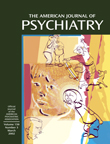Ms. Sandstrom and Dr. Kranzler Reply
To the Editor: We thank Drs. Hirsch and Andrade for their thoughtful consideration of our report. Dr. Hirsch’s suggestion that the sweet preference observed among alcoholics may represent an artifact of impaired olfaction is interesting and worthy of further consideration. Although reports showing greater sucrose preference in alcoholics have revealed no impairment in the capacity to discriminate among different sucrose concentrations, an impairment of olfaction could influence the hedonic value of the solution.
The results of our effort to avoid the confounding effects of alcoholism on taste preference by studying nonalcoholic children of alcoholic fathers has recently been replicated by other researchers (1). Nonetheless, we agree with Dr. Andrade’s comment that the lack of an association between sweet preference and paternal history of alcoholism does not preclude an association between sweet preference and alcoholism risk. Since studies comparing nonalcoholic groups with and without paternal alcoholism do not directly measure alcoholism risk, the only study design that we believe fully addresses this question is a prospective, longitudinal one. However, such a study would be costly and time-consuming. In view of the recent report of an association between a family history of alcoholism and sweet preference among alcoholics (2), further studies of sweet preference among alcoholics (e.g., after variable periods of abstinence from alcohol) may clarify whether sweet preference is a valid phenotypic marker of alcoholism.
1. Scinska A, Bogucka-Bonikowska A, Koros E, Polanowska E, Habrat B, Kukwa A, Kostowski W, Bienkowski P: Taste responses in sons of male alcoholics. Alcohol Alcohol 2001; 36:79-84Crossref, Medline, Google Scholar
2. Kampov-Polevoy AB, Tsoi MV, Zvartau EE, Neznanov NG, Khalitov E: Sweet liking and family history of alcoholism in hospitalized alcoholic and non-alcoholic patients. Alcohol Alcohol 2001; 36:165-170Crossref, Medline, Google Scholar



